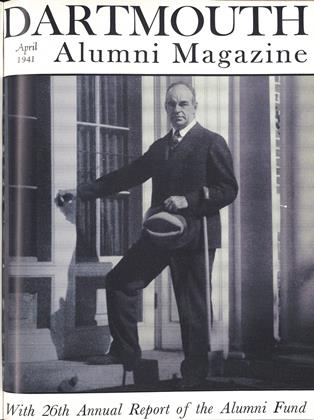DR. BARTLETT HAD LONG been associated with the Chicago Theological Seminary. In keenness of intellect he was, perhaps, the superior of any of his predecessors; he was a profound scholar in the field of Old Testament criticism; an orator of distinction; with a rapidity of mental action and a quickness of repartee that had few equals. Unfortunately to these qualities he united an opinionated turn of mind that did not readily brook tion; a fatal gift for sarcasm, prone to wound; complete absence of tact and little proficiency in the art of managing men.
Friction was not slow to develop. The President's belief in the supremacy of the traditional classical education brought with it a low opinion of the efficacy of the Chandler School and the Agricultural College, thus alienating the supporters of those institutions. He also antagonized the majority of the academic faculty and a considerable proportion of the alumni body. The result was that a formal demand for his removal came from these groups, to which the Trustees responded by holding a hearing on the charges. Victory in the contest rested with the President, but ill-feeling was not assuaged, nor was he able to secure from the Trustees removal of certain of his faculty opponents, as he wished. So the remainder of his term was passed in a state of armed neutrality.
Despite these unfortunate incidents, in material ways the College advanced more under Dr. Bartlett than under any preceding President. The endowment was considerably increased, a library building (Wilson Hall), Rollins Chapel, Bartlett Hall and The Wheelock (now the Hanover Inn) were erected. At the very end of the administration, despite presidential opposition, an arrangement was made for alumni representation on the Board of Trustees. Despite the internal dissention of the period, the College acquired much new strength.
VIII. SAMUEL COLCORD BARTLETT Dartmouth, 1836; President, 1877-92
 View Full Issue
View Full Issue
More From This Issue
-
 Feature
FeatureReport of Twenty-Sixth Alumni Fund
April 1941 By SUMNER B. EMERSON '17 -
 Feature
FeatureContributions by Classes in 1940 Alumni Fund Campaign
April 1941 -
 Feature
FeatureThayer School Report
April 1941 By F. H. Munkelt '08 (Thayer '09) -
 Feature
FeatureClass Rankings on 1940 Achievement
April 1941 -
 Feature
FeatureDartmouth Regulars
April 1941 -
 Feature
FeatureAlumni Fund Records 1915 to 1940
April 1941










